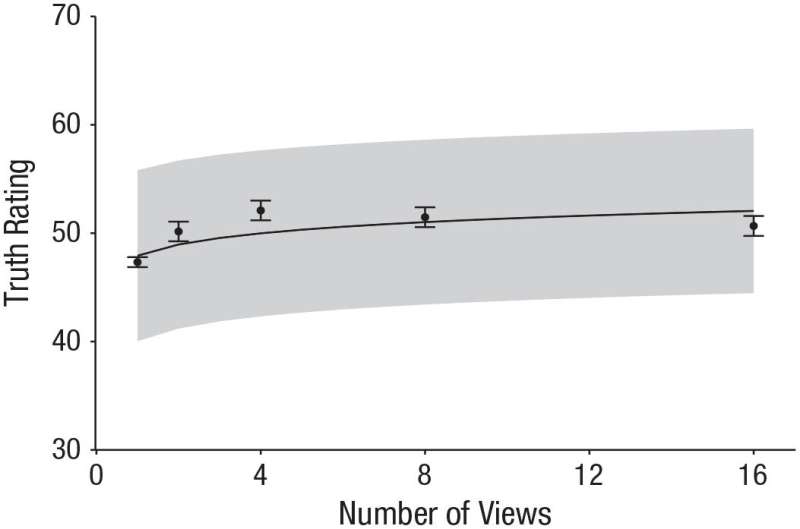This article has been reviewed according to Science X's editorial process and policies. Editors have highlighted the following attributes while ensuring the content's credibility:
fact-checked
peer-reviewed publication
trusted source
proofread
Repeatedly seeing headlines of wrongdoing reduces perception of moral offense, finds study

A study recently published in Psychological Science reveals that when people repeatedly encounter headlines about corporate wrongdoing, they view the wrongdoing as less unethical and are more likely to believe the headlines are true.
Social media can cause scandalous news to go viral in an instant, and the resharing of provocative headlines ensures people repeatedly encounter these scandals. To test the effects of this repetition on moral judgment, researchers at Vanderbilt Peabody College of education and human development and the London Business School sent text messages to study participants with news headlines about corporate misconduct. The study occurred over the course of 15 days as participants engaged in their daily routines.
"We often think about social media and the current digital media landscape as increasing our anger and moral outrage, but in this case, repeated exposures to corporate wrongdoings actually made people slightly less outraged about the moral offense," said Lisa Fazio, associate professor of psychology and human development.
"When we repeatedly see news of the latest viral wrongdoing on social media, we often encounter it passively, at random times of the day, and while we might be distracted by other tasks. In our research, we show that even passing encounters can shape our thoughts and emotional reactions," said Raunak Pillai, the study's first author and a psychology doctoral student in Fazio's Building Knowledge Lab.
The researchers found that participants rated repeated headlines of wrongdoing as significantly less unethical than new headlines—a phenomenon known as the moral repetition effect—and that participants' anger diminished when they encountered wrongdoings described in repeated headlines versus new headlines. The less anger they felt, the less unethical they judged the wrongdoing. Likewise, wrongdoings in repeated headlines verses new headlines were rated as less unusual, which also led to judging the wrongdoing as less unethical.
That said, the effect size of repetition on moral judgment diminished as participants encountered more headlines; in other words, the effects were larger from the first to the second encounter as compared to the 15th to 16th encounter. As the number of repetitions increased, the effect on moral judgment became progressively smaller.
Additionally, the more frequently participants viewed a headline, the truer they thought it was (known as the illusory-truth effect). After the initial views of headlines, participants' truth ratings rose sharply and then plateaued, suggesting that the first few encounters with a headline have the most impact on peoples' beliefs. The findings also suggest that perceptions of misconduct as true may elicit a more lenient moral judgment, but the authors say more research is needed to confirm this effect.
"The more we hear about a wrongdoing, the more we may believe it—but the less we may care," the authors write.
More information: Raunak M. Pillai et al, Repeatedly Encountered Descriptions of Wrongdoing Seem More True but Less Unethical: Evidence in a Naturalistic Setting, Psychological Science (2023). DOI: 10.1177/09567976231180578
Journal information: Psychological Science
Provided by Vanderbilt University




















